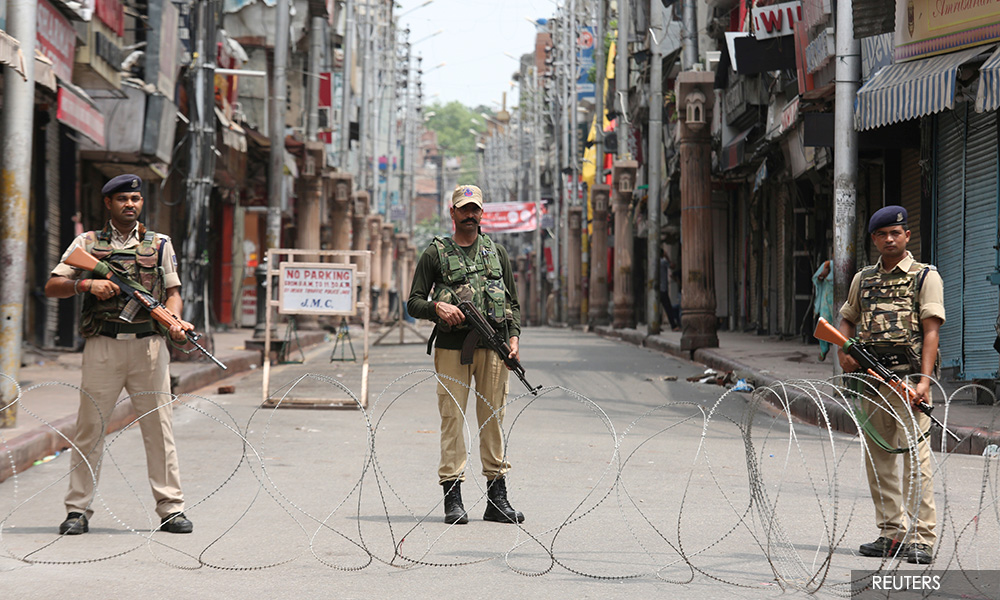An 18-year-old man has died in Indian Kashmir nearly a month after he was injured during a protest, the first official death since India flooded Kashmir with troops, prompting tighter security in parts of the city of Srinagar fearing a reaction.
Asrar Ahmed Khan, a resident of Srinagar’s Ilahibagh area, died on Tuesday night, succumbing to wounds he suffered on Aug 6, three officials said.
“He was reportedly injured with a blunt object in a law and order situation where a violent crowd was indulging in stone pelting,” Jammu and Kashmir Director General of Police Dilbag Singh told Reuters.
Khan had been admitted to Srinagar’s Sher-i-Kashmir Institute of Medical Sciences with wounds to his head, and was undergoing treatment in an intensive care ward, a government official said, declining to be named.
Singh said there were allegations from protesters that Khan had been hit by a tear gas shell, though authorities suspect it may have been a stone thrown by protesters.
“Matter (is) under investigation,” Singh said.
There have been two deaths reported earlier by media but they been challenged by authorities.
The Indian government flooded the Kashmir valley with troops, introduced movement restrictions and cut off most communication as Prime Minister Narendra Modi announced the withdrawal of special rights for the Himalayan region on Aug 5.
There have been sporadic protests against Modi’s withdrawal of special status, which gave Kashmir more autonomy than any other Indian state, and security forces have used pellets and tear gas to quell these.
Parts of Srinagar’s old quarter, which has often been a centre for protests, were locked down on Wednesday, a government official and a Reuters witness said.
Concertina wire barriers have been strung across roads, manned by armed paramilitary in full riot gear, and movement of people had been tightened, the witness said.
“These are normal day restrictions in that area and some extra precautions on likely law and order scenario,” said Singh.
A communication blackout, including the severing of mobile phones and internet connections, has now entered its 31st day.
Hundreds of political leaders and workers, including three former chief ministers, have also been detained.
By stripping Indian-controlled Kashmir of its special status, New Delhi blocked its right to frame its own laws and allowed non-residents to buy property.
Delhi said the change would help Kashmir’s development, to the benefit of all, but its move angered many residents of the region and was strongly condemned by Pakistan, which also claims Jammu and Kashmir.
Muslim-majority Kashmir has long been a flashpoint between India and Pakistan. Both countries rule parts of Kashmir while claiming it in full. Two of the three wars they have fought have been over it.
- Reuters


